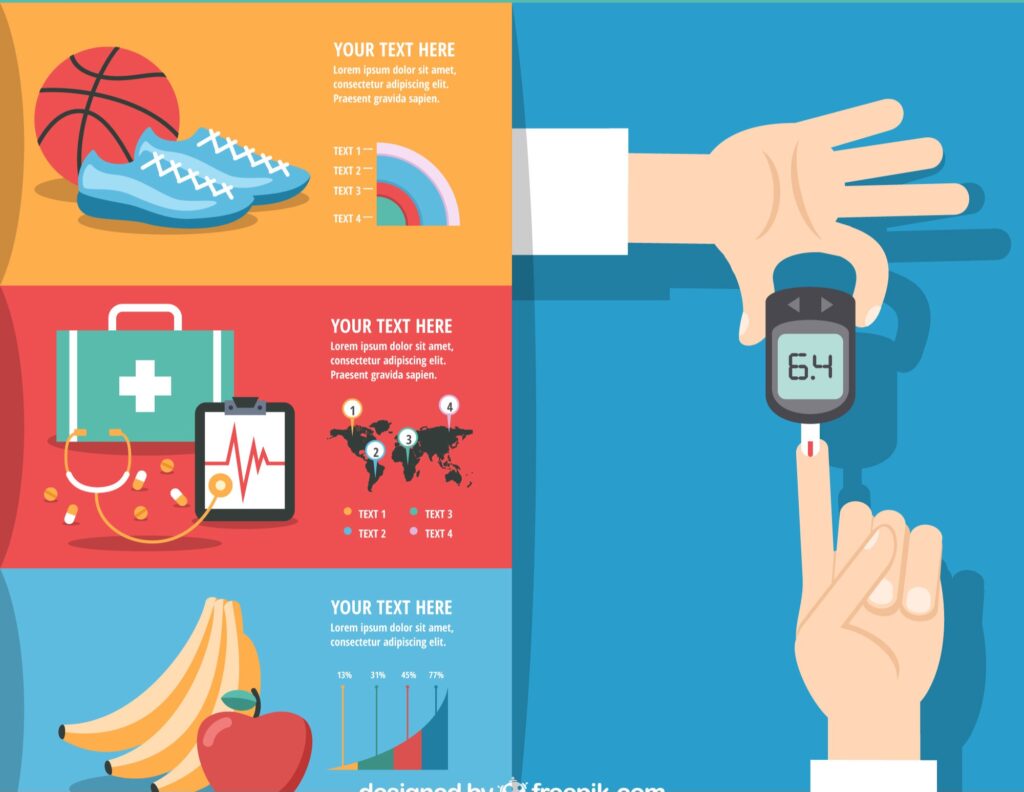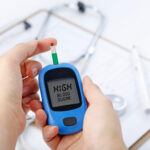
Fast Facts
Heart Health: Regularly check blood cholesterol and blood pressure
Nerve Damage: Early treatment of symptoms can prevent worsening
Foot Care: Daily checks and proper footwear can prevent infections
Eye Health: Yearly screenings can detect problems early
Oral Health: Good dental hygiene and regular dentist visits are crucial.
Diabetes can increase your risk of developing other health problems. These complications may not appear immediately, but consistently high blood glucose levels can eventually lead to several serious conditions.
Potential Health Problems
Over time, high blood glucose levels can cause:
- Heart disease and stroke
- Foot and circulation problems
- Vision problems and blindness
- Pain and loss of feeling (nerve damage)
- Kidney issues
- Gum disease
Important Tips
The best ways to lower your risk of these complications include maintaining stable blood sugar levels, attending all diabetes appointments, and participating in diabetes education courses.
Heart Health Monitoring
It is essential to have your blood cholesterol (fats) and blood pressure checked at least once a year. Smoking exacerbates the impact of diabetes on your heart, so quitting smoking is crucial.
Preventing Loss of Feeling
Diabetes can damage your nerves (neuropathy), leading to:
- Numbness
- Pain or tingling
- Sexual dysfunction
- Constipation or diarrhea
Report any of these symptoms to your GP or diabetes nurse promptly, as early treatment can prevent further nerve damage.
Foot Care
Diabetes can reduce blood flow to your feet and cause a loss of sensation, which means injuries might heal poorly or go unnoticed, potentially leading to ulcers and infections.
Foot Care Tips:
- Keep your feet clean and dry to avoid infection.
- Avoid going barefoot outside to prevent cuts and grazes.
- Wear well-fitting shoes.
Check your feet daily for changes such as cuts, cracks, blisters, pain, tingling, or numbness. Have your feet examined yearly by a diabetes nurse or foot specialist.
Eye Health
Diabetes can damage the blood vessels in your eyes, leading to vision problems (diabetic retinopathy) and blindness.
Eye Care Tips:
- Have your eyes checked yearly through diabetic eye screening, which detects damage before it affects your vision.
- Attend all eye screening appointments, as early detection allows for treatment and prevention of diabetic eye disease.
Report any changes in your vision, such as blurred vision (especially at night), floaters, or light sensitivity, to your GP immediately.
Oral Health
High blood glucose levels can increase your risk of gum disease and infections.
Oral Health Tips:
- Brush your teeth twice daily or keep your dentures clean.
- Visit a dentist regularly.
- Avoid smoking, as it weakens your immune system and makes it harder to fight gum infections.
See a dentist immediately if you notice any mouth issues, including soreness, bleeding gums, or bad breath.
Summary
Managing diabetes effectively involves regular monitoring and proactive care. By keeping your blood sugar levels stable, attending all necessary health appointments, and following the guidelines for heart, nerve, foot, eye, and oral health, you can significantly reduce your risk of complications and maintain a better quality of life
A Quick Review
Managing diabetes effectively involves regular health check-ups and proactive care. Monitor your blood sugar levels, visit your doctor for heart, nerve, foot, eye, and oral health checks, and follow recommended guidelines. Early detection and treatment of complications can significantly improve your quality of life.












